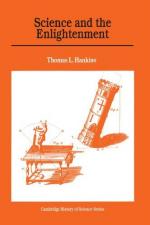
|
| Name: _________________________ | Period: ___________________ |
This quiz consists of 5 multiple choice and 5 short answer questions through Chapter 5, Natural History and Physiology.
Multiple Choice Questions
1. Chapter 5 reveals that in ________, natural theology declined after 1750 as a result of the anti-religious sentiment of the Enlightenment.
(a) France.
(b) Germany.
(c) America.
(d) England.
2. In Chapter 2, what was the name of the path of a body that is dragged over a resisting horizontal surface by a cord of which one end moves along a straight line found?
(a) Cycloid.
(b) Isoperimeters.
(c) Brachistachrone.
(d) Tractrix.
3. In 1688, who had shown that the insect larva, pupa, and imago can exist simultaneously, all nested one within the other?
(a) Swammerdam.
(b) Von Baer.
(c) Hertwig.
(d) Malebranche.
4. According to the narrator in Chapter 2, the only machine employed by rational mechanics was ________.
(a) The body.
(b) The mind.
(c) The car.
(d) The soul.
5. What was Diderot's first philosophical work, according to the narrator in Chapter 5?
(a) On the Interpretation of Nature.
(b) The Letter on the Blind.
(c) Encyclopedie.
(d) Philosophical Thoughts.
Short Answer Questions
1. The narrator reveals that mathematicians pursued ________, in which the physical object was reduced to a few idealized properties that were capable of quantification.
2. Joseph Black studied chemistry with ________ at Glasgow, serving for three years as his assistant, according to Chapter 4.
3. The conversion of 'sGravesande confused the ideological debate because he was one of the leading supporters of ________ philosophy on the Continent.
4. In February 1744, ________, master apothecary to the French Army, published an article on the red precipitate of mercury "per se" in "Observations sur la physique, sur l'histoire naturelle, et sur les arts."
5. In his dialogue "D'Alembert's Dream," Diderot brought together the ideas of all of the following individuals except for whom?
|
This section contains 263 words (approx. 1 page at 300 words per page) |

|




